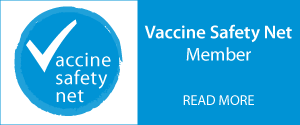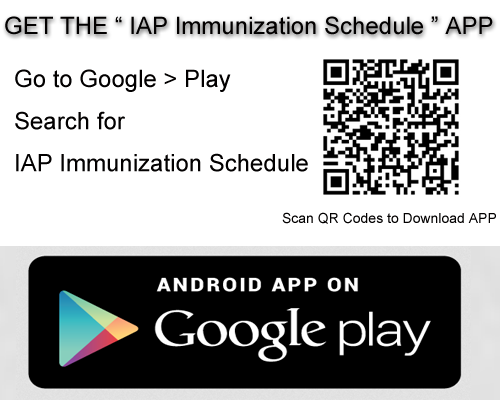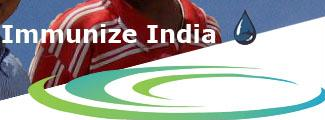When did the meningococcal vaccine become available?
The first meningococcal vaccine in the United States was licensed in 1974 and was effective against only one of the five major subtypes of meningococcus.
A meningococcal polysaccharide vaccine or "MPSV4" (Menomune by sanofi pasteur) was licensed in 1978 for people ages 2 years and older. It protects against four subtypes of meningococcus-A, C, Y, and W-135. The first quadrivalent meningococcal conjugate vaccine (MCV4), Menactra by sanofi pasteur, was licensed in 2005. A second conjugate vaccine, Menveo by Novartis, was licensed in 2010. They both also protect against the A, C, Y and W-135 subtypes. Meningococcal conjugate vaccines are expected to give better, longer-lasting protection than the polysaccharide vaccine. They are licensed for use in people ages 2 through 55 years. Unfortunately, no vaccine protects against subtype B which causes about one third of all the meningococcus cases in the United States. In 2001, 65% of cases in infants age one year or younger were caused by subtype B.
What kind of vaccines are they?
The MPSV4 vaccine is made from the outer polysaccharide capsule (sugar coat) of the meningococcal bacteria. The meningococcal conjugate vaccines are made by conjugating the capsular polysaccharide antigens individually to diphtheria toxoid protein. Both the polysaccharide and conjugate vaccines protect against serotypes A, C, Y and W-135 and do not contain live bacteria.
How is this vaccine given?
The MPSV4 vaccine is given as an injection into the fat of the arm. The MCV4 vaccines are given in the muscle.
Who should get the meningococcal vaccine?
MCV4 is recommended for all children and teens, ages 11 through 18 years of age. Vaccination is recommended for other people at increased risk of meningococcal disease; this includes:
Persons 19-21 years if they are entering college or are in a college or university setting. Individuals who have a damaged or missing spleen. People with persistent complement component deficiency (an immune system disorder). People working with meningococcus bacteria in laboratories. Travelers to certain countries in sub-Saharan Africa as well to other countries for which meningococcal vaccine is recommended (e.g., travel to Mecca, Saudi Arabia, for the annual Hajj). U.S. military recruits. Anyone who might have been exposed to meningitis during an outbreak.MCV4 should be used in people ages 2 through 55 years in these risk groups, but MPSV4 can be used if someone has a permanent contraindication or precaution to the use of MCV4. MPSV4 is the only licensed meningococcal vaccine product that can be used in adults 56 years or older.
Should college students be vaccinated against meningococcal disease?
College freshmen, especially those living in dormitories, are at an increased risk of meningococcal disease relative to other people their age. The MCV4 vaccine is recommended for persons 19-21 years old if they are entering college or are in a college or university setting. Some schools now require incoming freshmen and others to be vaccinated. The vaccine may be available from the college health service. Although the risk for meningococcal disease among non-freshmen college students is similar to that of the general population of the same age, there is no medical reason that other students who wish to decrease their risk of meningococcal disease cannot receive the vaccine.
How many doses of meningococcal vaccine are needed?
Some people need 2 doses spaced 8 weeks apart when first vaccinated; this includes children and adults who are without a spleen or with a damaged spleen, with persistent complement component deficiency (an immune system disorder), or infected with HIV.
Are booster doses needed following initial vaccination?
Yes, all adolescents who were first vaccinated at ages 11 through 12 years need a booster dose at age 16 years; all teens who were vaccinated at ages 13 through 15 years need a booster dose at age 16 through 18 years. In addition, vaccinated people who remain at risk, such as people without a spleen or those who travel repeatedly to parts of Africa, should receive an additional vaccination at least 5 years after their previous dose of either MCV4 or MPSV4. Young adults ages 19 through 21 years who are living in on-campus housing should get a booster dose if their previous dose was given before age 16 years.
How soon after their first dose should people who remain at risk for meningococcal disease be vaccinated again?
The interval between doses depends on the age at which they received their first dose. Children who received their previous dose before their seventh birthday should get vaccinated with a minimum interval of 3 years. Children who received their previous dose at or after age 7 years and all adults should get vaccinated with a minimum of 5 years between doses.
How can children younger than age two years be protected from meningococcal disease?
Under special circumstances (e.g., where short-term protection against serogroup A meningococcal disease is needed), MPSV4 may be given to children ages 3 through 23 months. These children should get two doses, given three months apart.
How safe is this vaccine?
Both meningococcal vaccines are very safe. Polysaccharide (sugar) meningococcal vaccines have been used extensively in mass vaccination programs, such as those conducted by the military.
What are the side effects of this vaccine?
Up to about half of people who get meningococcal vaccines have mild side effects, such as redness or pain where the shot was given. These symptoms usually last for one or two days and are more common after MCV4 than after MPSV4. A small percentage of people who receive the vaccine develop a fever. Severe reactions, such as a serious allergic reaction, are very rare. A nervous system disorder called Guillain-Barre Syndrome has been reported among some people who received MCV4. This happens so rarely that it is currently not possible to tell if the vaccine might be a factor. For more information, go to www.cdc.gov/vaccinesafety/vaccines/gbsfactsheet.html
How effective is this vaccine?
The MPSV4 vaccine is 85 percent to 100 percent effective at preventing infection from the subtypes of meningococcus found in the vaccine (A, C, Y, and W-135). However, the vaccine does not protect against serogroup B meningococcus. Based on results of laboratory studies, MCV4 is believed to be as effective as MPSV4 and to have a longer duration of immunity.
Who should not receive meningococcal vaccine?
People who have had a serious allergic reaction to a previous dose of either meningococcal vaccine or to one of the vaccine components.
People who are moderately or severely ill.
Can a pregnant woman get meningococcal vaccine?
Studies of vaccination with MPSV4 during pregnancy have not documented adverse effects among either pregnant women or newborns. No data are available on the safety of MCV4 during pregnancy. Pregnancy is not considered to be a contraindication to either MPSV4 or MCV4.
Can the vaccine cause meningococcal disease?
No. Only the Neisseria meningitidis bacterium can cause meningococcal disease. The vaccine is fractional and contains only a part of the microbe.
Last Updated : 10/01/2020
© Copyright 2015, All Rights Reserved by ACVIP. Powered by: ITindustries.com







